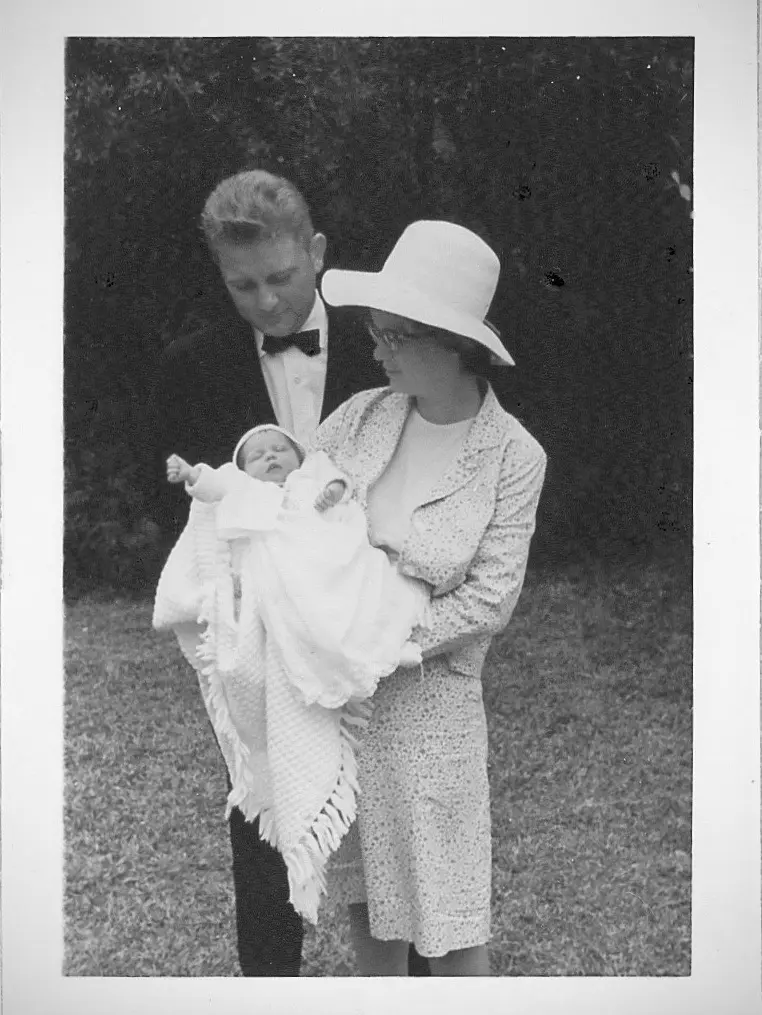Monogamy, the practice of having one sexual partner at a time, is a concept that has sparked the interest of countless anthropologists and has been the subject of decades of research. You may have even heard people state that monogamy is “unnatural.”
If this is true, why do you imagine monogamy has been favored for millennia?
Ancient Roots of Monogamy
Anthropologist Laura Fortunato has spent her life researching the evolution of human family systems and believes monogamy first arose in Eurasian societies about 12,000 years ago—around the time that agriculture took hold on societies. It was then that land became valuable, and more and more people began settling in one place to farm. As they settled down, they found a need for the stability of a family and heirs to help with the day-to-day care of the land.
Primatologist Jane Goodall even discovered evidence of a preference of monogamy among chimps. Through her observations, she found while chimps would mate indiscriminately, the female would actually delay ovulation until she found a “favorite” male, with whom she would then “sneak off” into the jungle. They would spend time alone together “building a nest in the trees, grooming each other, [and] exchanging signs of affection.” Researchers later discovered that the alpha male and alpha female would pair off, followed by the beta male and beta female, and so on. Thus, each member of a couple felt like he or she mated with the finest of who was available.
Monogamy Fosters Stability
Monogamy makes sense. There’s no denying the fact that monogamous relationships, leading to stable, lifelong, and faithful marriages, help society thrive. The foundation of a healthy society lies in the stability of a family. When two people love each other and make that commitment to stay together and raise a family—through good times and bad—they raise happier, better adjusted children.
Indeed, Cardinal Robert Sarah, the Vatican’s Prefect for the Congregation of Divine Worship and the Discipline of the Sacraments, condemned threats to the family in 2015. He specifically named polygamy, also referencing destruction of the family caused by abortion, gender ideology, the LGBT lobby, divorce and euthanasia, among other factors.
William Tucker, author of Marriage and Civilization, How Monogamy Made Us Human, also argues polygamy leads to problems and difficulties in societies, while monogamy has a stabilizing effect on them:
Human societies everywhere and throughout all time have enforced some kind of rules on marriage and have frowned on extramarital affairs. The stability of the group is at stake. If people start flaunting the rules of marriage, then the equilibrium is upset as growing numbers of males and females are left without mates. These individuals become disruptive, and the cohesion of the entire society is threatened. Monogamy does not maximize the interests of every participant. What it does is optimize everyone’s individual outcome in a way that maintains the integrity of the entire society, whose credo is “a girl for every boy, a boy for every girl.”
While the history is fascinating and offers a glimpse into how relationships and marriage evolved, our Catholic faith teaches monogamy is deeply rooted in Christ’s plan for His children. In Humanae Vitae, Pope Paul VI wrote: “Marriage, then, is far from being the effect of chance or the result of the blind evolution of natural forces. It is in reality the wise and provident institution of God the Creator, whose purpose was to effect in man His loving design. As a consequence, husband and wife, through that mutual gift of themselves, which is specific and exclusive to them alone, develop that union of two persons in which they perfect one another, cooperating with God in the generation and rearing of new lives.”
Expounding on this design for marriage, Fr. Shenan J. Boquet articulated: “There are two striking elements about Pope Paul VI’s vision of married love. The first is that it is a vision of love that demands continual effort and sacrifice. …And, secondly, it is a love that presumes equality between the spouses, an equality that is fostered by the spirit of sacrifice mentioned above.”
Effort and sacrifice are the backbone of any good marriage. God did not promise that marriage would be easy, but He did promise us His graces if we ask for them. And though He gave us this gift of marriage, we are free to squander this gift, and we are free to cultivate it.
Unfortunately, today, we see many more examples of the squandering of this gift, as our society seeks to distort the beauty of God’s gift of marriage and normalize even the most disordered, troubled of unions, including polyamorous ones such as this one involving a married couple and their female counterpart—known as a “throuple.” They all live as a “open family” with the couple’s 7-year-old son. All are children of divorced parents, which no doubt played a role in their decision.
Using the word “open” makes it sound like those who believe in the marriage of one man and one woman are somehow close-minded. But think: these “explorers” see sexuality as nothing more than a buffet, where you can choose something new each time you feel hungry. And if you don’t like it, simply discard it.
Aside from the interpersonal problems and the pain that will inevitably develop because of the sharing of a lover—and the ensuing discord—what happens to the child in that relationship? He lives with confusion, and he grows up with not just a skewed view of marriage, but a skewed view of fidelity as well—one he will carry to his future relationships.
The Marriage Bond Is Sacred
The very capacity of human beings to bond themselves to another and whether a union that lasts an entire life is truly possible. … Thinking that persons might become themselves while remaining ‘autonomous’ and only entering into relationships with others that can be interrupted at any time is part of a widespread mentality. Everyone is aware of how a human being’s choice to bind themself with a bond lasting an entire life influences each person’s basic perspective according to which they are either anchored to a merely human plane or open themselves to the light of faith in the Lord.
– Pope Emeritus Benedict XVI
God has a better plan—and His plan is perfect. He has elevated marriage to a sacrament—one where both spouses continually work for the betterment of each other. Think of it this way: Love is wanting what’s best for the other person. Polyamorous relationships want only what’s best for “me.”
Some may think that this ideal of marriage is just a “pie in the sky” dream. But why would we not strive for what is best and healthiest, not only for ourselves, but for our children and our children’s children? As Catholics, we understand that this vision of marriage may no longer be the “norm” in society, but we are not called to follow the norm. We are called to follow Christ. We are called to live each and every day always working to get ourselves—and our spouse and children—one step closer to eternal life with God. That is the goal. Pure and simple. And it is a goal that we cannot attain if we live only for the here and now and if we put selfish and bodily desires over spiritual ones.
Related Content
Susan Ciancio has a BA in psychology and a BA in sociology from the University of Notre Dame, with an MA in liberal studies from Indiana University. Since 2003, she has worked as a professional editor and writer, editing both fiction and nonfiction books, magazine articles, blogs, educational lessons, professional materials, and website content. Fourteen of those years have been in the pro-life sector. Currently Susan writes weekly for HLI, edits for American Life League, and is the editor of its Celebrate Life Magazine. She also serves as executive editor for the Culture of Life Studies Program, an educational nonprofit program for k-12 students.













Monogamy is not a ‘concept’ as said in the opening line, and that line is better rendered without the relativist “at a time”: Monogamy, the practice of having one sexual partner, has engaged the interest of countless anthropologists. When moving to the outline of God’s plan for Christian marriage in Humanae Vitae, it would be valuable to stress a third component (besides the effort and the equality mentioned by Fr. Boquet), namely “cooperating with God” — and not only in procreation; for God is actually the third unseen partner in the sacrament. This is the key delivery that is missed everywhere, even in the majority of Marriage Preparation courses in the Catholic Church. In fact, without that emphasis, the whole project of marriage comes across as a humanistic effort to maximize outcomes in a ‘stable society’ – whether agrarian or urban or any other economic ‘ecology.’